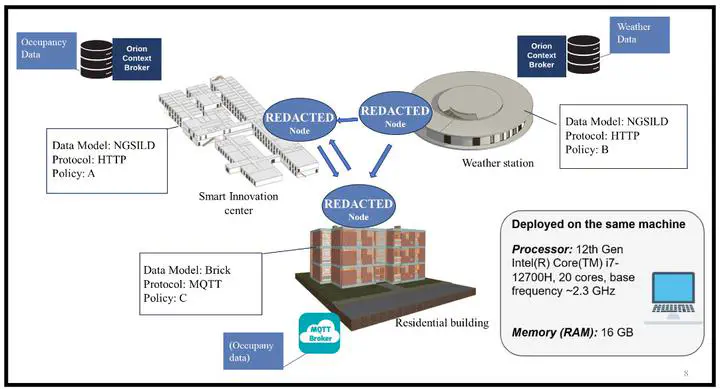Adaptive and Interoperable Federated Data Spaces: An Implementation Experience

Abstract
As modern smart cities increasingly rely on federated IoT-enabled data spaces to support their operations, the dynamic and heterogeneous nature of these environments introduces significant challenges. Variations in data models, protocols, and policies hinder seamless federation and collaboration. To address these challenges, we present the prototype implementation of CCDUIT, a modular, scalable, and adaptive software overlay architecture for cross-federation collaboration. This architecture dynamically adapts to evolving data exchange requirements, including protocol variations, data model discrepancies, and policy constraints, ensuring continuity and efficiency in data discovery and exchange. The prototype uses context-aware mechanisms to autonomously adjust operations, dynamically reconfigure collaborations, enforce data exchange policies, and optimize data-sharing pathways. We validate the prototype using real-world data spaces operating to address barriers to climate change mitigation and energy transition. Experimental results highlight the ability of the architecture to adapt for diverse federation-specific needs with minimal operational overhead and respond to dynamic policy changes. We release our prototype as open source, enabling the community to explore, extend, and adapt it to their own needs.